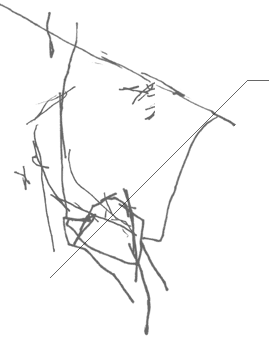Wednesday, February 25, 2026 |
||

|

by Michael Goldberg
Monday, August 26, 2002
Spoon's Experiments In Sound
The Austin pop-rock quartet pushes the sonic envelope
|
|||
|
When I'm feeling down, one sure cure is the kind of ebullient pop
rock that I grew up on, the kind of music The Beatles made on albums
such as Beatles VI, Rubber Soul, Revolver and
even Abbey Road. Such songs as "Eight Days a Week" and "Got to
Get You Into My Life" made me feel so hopeful about the world, so
upbeat and positive. Like anything was possible.
Among the pop rock bands that I get that kind of rush from these days are Guided by Voices (always!) and Spoon. It's all about the sound. On Spoon's latest, Kill the Moonlight, bandleader Britt Daniel may be singing some downbeat lyrics some of the time, but what I hear are good times — and a strong spirit. "I will no longer do the devil's wishes," as Daniel sings on "Paper Tiger." Spoon — a quartet consisting of vocalist/guitarist Daniel, drummer Jim Eno, bassist Josh Zarbo and keyboardist Kevin Lovejoy — now mostly record in Eno's home studio in Austin, Texas. The studio was being put together when they recorded their last album, Girls Can Tell. At the time they had no record deal, and were still coming off being burned during their brief experience on Elektra Records. The album took over a year to record, but it was an album made by a band with literally nothing to lose. In retrospect, it's quite amazing that Girls Can Tell even came together. But it did, and the group signed to Superchunk's Merge label, which is also home to Destroyer, Lambchop, Ladybug Transistor and many other cool artists. Girls Can Tell sold better than Spoon's previous three albums. Now it would seem that the momentum from a growing audience, well-received live shows and a studio with no clock running (hence, no huge studio bills) allowed the group to approach recording Kill the Moonlight with renewed energy and the confidence to take big chances. The electric clavinet-like riff that opens "Small Stakes," the album's first track, signals that this is a very different Spoon album. In essence, the group has deconstructed the classic Brit-pop that heavily influences their sound. It's as if they decided to see just how minimal they could get and still create distinctive pop music. Thus "That's the Way We Get By" begins with some keyboard chords and Daniel's voice. As the song builds, a tambourine and some handclaps are added to the mix, and, at a couple of points, drums. You really have to hear this one to understand the power of such creatively arranged, minimal music. This one rocks way more than 95% of the music made with stacks of Marshall amps. At first, when I listened to my advance of Kill the Moonlight (slipped to me a few months ago), my thought was, "Where are the guitars?" Daniel is one of modern rock's best guitarists. This is abundantly clear from listening to Spoon's masterpiece, 1998's A Series of Sneaks. He has "the feel," the kind of touch that has distinguished such masters of rhythm as Ry Cooder and Keith Richards. He doesn't seem to believe in solos, and Spoon's typically brief songs don't call for them. In a band where he is the sole guitarist, Daniel's spartan approach utilizes chords and occasional short exuberant riffs. As I got used to the latest evolution of the Spoon sound, I realized that there were guitars on the album, just not on all the songs, and for the most part used with more subtlety. "Don't Let It Get You Down," one of the album's standout tracks, features stunning guitar, it's just that it's only there for a few moments. "Jonathon Fisk," the album's most rockin' track, is built on a driving rhythm guitar. But Spoon want to be more than a guitar-heavy rock combo. Kill the Moonlight is their serious move into Phil Spector territory. Not that they've created a wall of sound, or that their music sounds anything like the work of rock's most famous record producer. But with this album, they are both record producers and a band. Thus the songs and what is needed to make them unique take precedence. And if a song is better suited to an arrangement sans guitars, so be it. Nearly every track here is a sonic experiment. For instance, the magnificent "Don't Let It Get You Down" features a mix with Daniel's vocal panned hard left and most of the drums hard right. At several points during "All the Pretty Girls Go to the City" all that we hear is Daniel's voice and a tambourine. And throughout the album sounds and instruments are dropped in and out of the mix. This is an album that demands to be listened to with headphones. It ends with a ballad. With just an acoustic guitar playing, Daniel sings: "I took a river and it wouldn't let go/ I want you to stay and I want you to go." It builds with keyboards and a wall of gospel-style background vocals. "I took a river and the river was long and it goes on," he sings. And so goes the evolution of Spoon, which I hope will also be long, and will go on and on. |
||||